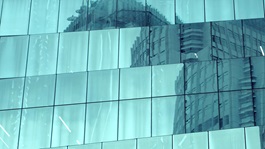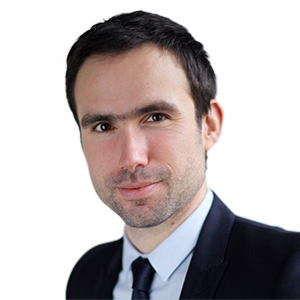Legal Professional Privilege
Does your jurisdiction recognise or hold a concept of legal professional privilege? What is it called?
In France, there is no concept of “legal professional privilege” per se. Avocats à la cour (attorneys) are bound by the rules of professional secrecy.
What is the basis at law of legal professional privilege in your jurisdiction?
Professional secrecy finds its basis in statute, the violation of which is subject to sanctions as per Article 226-13 of the French Criminal Code.
How does legal professional privilege operate in your jurisdiction in the context of:
…lawyers qualified in your jurisdiction?
Professional secrecy is general, absolute and unlimited in time.
Article 4 of the Decree n°2005-790 of July 12, 2005 concerning the rules of ethics of the legal profession provides that subject to the strict requirements of their own defence before any court and the cases of declaration or disclosure provided for or authorized by law, the attorney shall not, in any matter, make any disclosure contrary to professional secrecy.
Article 66.5 of the Law n° 71-1130 of December 31, 1971 on the reform of certain judicial and legal professions provides that “in all matters, whether in the field of advice or in that of defence, consultations addressed by an attorney to their client or intended for the latter, correspondence exchanged between the client and their attorney, between the attorney and their colleagues, with the exception of correspondence marked "official", interview notes and, more generally, all documents in the file are covered by professional secrecy.”
A communication between an attorney and a prospective client is protected by professional secrecy despite the fact that a client/attorney relationship is yet to be formalised.
…in-house lawyers?
Under French law, in-house lawyers (juristes) do not share the same status as members of the Bar (avocats). In-house lawyers are bound by general professional secrecy but not in the same way as attorneys. Professional secrecy does not cover communications between in-house lawyers and officers, directors or employees of their employer, or information obtained from them.
…patent and trade mark attorneys?
According to Article 422-11 of the French Intellectual Property Code, professionals advising on industrial property must observe professional secrecy. This secrecy extends to consultations addressed or intended for their clients, to professional correspondence exchanged with their clients, a colleague or an avocat, to interview notes and, more generally, to all documents in the client files.
Article 422-1 of the same Code provides clarifications as to who the professionals advising on industrial property are: an industrial property advisor offers, on a regular and remunerated basis, their services to the public in order to advise, assist or represent third parties with a view to obtaining, maintaining, exploiting or defending industrial property rights, ancillary rights and rights relating to all related matters. The services referred to in this paragraph include legal advice and the drafting of private deeds.
Consequently, it is not necessary to be a professional registered with the bar in order to benefit from the professional secrecy that applies to industrial property advisors.
…foreign qualified lawyers?
Foreign attorneys benefit from the professional secrecy as applicable to attorneys registered in France if they practice in France. On the other hand, foreign in-house lawyers do not benefit from the same as neither do French in-house lawyers.
What materials or work product does legal professional privilege apply to in your jurisdiction?
As per Article 2 of the Règlement Intérieur National de la profession d'avocat (RIN) (a national regulation of the legal profession), professional secrecy covers in all matters, in the field of advice or defence, and whatever the medium, material or immaterial (paper, fax, electronic means...):
- consultations addressed by an attorney to their client or intended for the latter;
- correspondence exchanged between the client and their attorney, between the attorney and their colleagues, with the exception of those bearing the official mention;
- the notes of interviews and more generally all the documents in the file, all information and confidences received by the attorney in the exercise of the profession;
- the names of clients;
- the attorney's agenda;
- the pecuniary settlements and all handling of funds made in application of article 27 paragraph 2 of the law of December 31, 1971;
- information requested by auditors or any third party (information that can only be communicated by the attorney to their client).
Professional secrecy covers not only the information received from the client, but also the information received about them and/or about a third party in the context of the client file (CA Paris, ch. 1, sect. A, Nov. 30, 1994).
What does legal professional privilege not cover in your jurisdiction?
An attorney is authorized by exception to disclose the names of clients with their express and prior agreement in public or private requests for proposals and in the awarding of public contracts (Art. 2.2 of the RIN).
How is legal professional privilege waived in your jurisdiction, who can waive it, and what are the consequences of waiver?
Professional secrecy may be waived by the client.
Moreover, French laws on the prevention of money laundering and terrorism require attorneys, in cases where they perform financial or fiduciary duties for and on behalf of the client, to declare to the president of the Bar Association any suspicions of transactions where the concerned funds may have originated from fraud or other criminal offences.
The attorney is also authorized to produce confidential documents in court for their own defence: (i) when implicated in a criminal proceeding; (ii) if their professional civil liability is sought; and (iii) in disputes over fees. It should be noted that this exception solely concerns disclosures that are strictly necessary for the attorney's defence (D. n° 2005-790, July 12, 2005, art. 4 - Cass. crim., May 16, 2000, n° 99-85.304).
Lastly, a judge has the right under Article 97 of the French Criminal Procedure Code to order the seizure of the correspondence exchanged between the attorney and their client as soon as these documents make it possible to establish that the attorney took part in the offence, for example by subtracting documents or objects likely to characterize its existence. Article 56-1 of the same Code governs the rules around the search of an attorney’s office. In these cases, investigations must not infringe on the free exercise of the attorney’s profession.
For jurisdictions that do not have a concept of legal professional privilege, are there similar protection or management measures which exist in your jurisdiction, and how do they work?
Please see above.
Any other comments?
In addition to criminal sanctions, the violation of professional secrecy obligations may equally lead to disciplinary sanctions.





